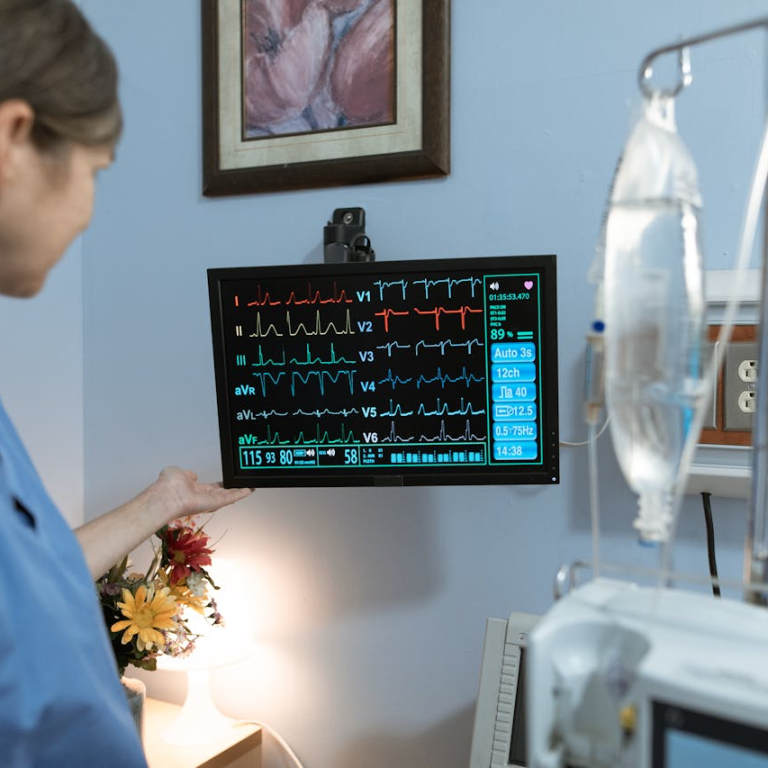Key Takeaways
-
Medicare in 2025 provides broad mental health coverage, including talk therapy, psychiatric evaluations, medication management, and new access to licensed counselors and family therapists.
-
To use your mental health benefits, you must work with providers who accept Medicare assignment and understand the conditions under which coverage applies.
Yes, Medicare Covers Mental Health Services in 2025
Many people still assume Medicare doesn’t offer mental health support, but that hasn’t been true for years. In 2025, Medicare includes a range of mental health services under Parts A, B, and D, as well as through Medicare Advantage plans. The benefits extend far beyond hospitalizations or psychiatric medications. You now have access to outpatient counseling, preventive screenings, and telehealth therapy.
The important thing is knowing what’s actually covered, who can provide the service, and how to access care with the least amount of out-of-pocket costs.
What Medicare Part A Covers for Mental Health
Medicare Part A handles inpatient care, including:
-
Psychiatric hospital stays (limited to 190 lifetime days if in a freestanding psychiatric facility)
-
Mental health treatment during a hospital stay for other conditions
-
Room and board, nursing care, and therapies during psychiatric hospitalization
What You Pay in 2025
-
$1,676 deductible per benefit period
-
Days 1–60: No coinsurance
-
Days 61–90: $419 per day
-
Days 91+: $838 per lifetime reserve day (up to 60 total)
These costs apply to hospital admissions, whether for psychiatric reasons or general medical conditions involving mental health.
What Medicare Part B Covers for Mental Health
Part B is where most mental health services are accessed, especially for therapy, screenings, and medication management. In 2025, you can get:
-
Individual and group therapy sessions
-
Psychiatric evaluations and diagnostic interviews
-
Medication management with a psychiatrist or nurse practitioner
-
Annual depression screening (free if conducted by a Medicare provider)
-
Services in partial hospitalization programs (PHPs) or intensive outpatient programs (IOPs)
Who Can Provide Care in 2025
As of January 1, 2025, Medicare now covers services provided by:
-
Psychiatrists
-
Clinical psychologists
-
Clinical social workers
-
Nurse practitioners (for mental health services)
-
Physician assistants
-
Marriage and Family Therapists (MFTs)
-
Mental Health Counselors (MHCs)
These last two provider types were added in 2024 and continue to be included in 2025, giving you more options for outpatient therapy, including couples and family sessions.
Part B Costs in 2025
-
$185 monthly premium (standard amount)
-
$257 annual deductible
-
20% coinsurance for most outpatient services after meeting your deductible
If you receive care in a hospital outpatient setting, you may also owe a facility copayment.
What Medicare Part D Covers for Mental Health
Part D plans cover prescription drugs, including those for mental health conditions such as depression, anxiety, bipolar disorder, and schizophrenia.
2025 Changes You Should Know
-
Annual deductible can be up to $590
-
Once you reach $2,000 in out-of-pocket drug spending, your plan pays 100% of covered drug costs for the rest of the year
This $2,000 cap is a major change and eliminates the old “donut hole” coverage gap.
You should check your plan’s formulary to see which medications are included and whether your pharmacy is in-network.
Telehealth Mental Health Services Are Still Covered
Medicare permanently covers telehealth for mental health care. In 2025, you can receive therapy and psychiatric services by:
-
Secure video calls
-
Audio-only visits (for some conditions)
However, one rule applies starting October 1, 2025: if you receive mental health care through telehealth, Medicare requires you to see the provider in person at least once every 12 months, with certain exceptions. If you are in a rural area or have transportation barriers, ask if you’re eligible for a waiver.
Partial Hospitalization and Intensive Outpatient Care
If your condition requires more than traditional talk therapy but not full hospitalization, Medicare covers structured outpatient care.
Partial Hospitalization Programs (PHPs):
-
Daily treatment sessions at a hospital or mental health center
-
Covered under Part B
-
Typically includes therapy, medication monitoring, and social services
Intensive Outpatient Programs (IOPs):
-
Similar to PHPs but fewer hours per day
-
Also covered under Part B
-
Appropriate for conditions like major depression, anxiety, or substance use recovery
These programs must be recommended by your doctor and provided at Medicare-approved facilities.
What Isn’t Covered by Medicare
Knowing the limits of Medicare mental health coverage is just as important. Here’s what isn’t included:
-
Services from providers who do not accept Medicare
-
Life coaching or motivational counseling
-
Support groups not led by licensed professionals
-
Therapy provided over text or unverified online platforms
-
Long-term custodial care for mental health without medical treatment
You can always call Medicare or a licensed agent to confirm whether a provider or service is covered before your appointment.
Choosing the Right Provider in 2025
To receive Medicare coverage, your mental health provider must:
-
Be licensed in your state
-
Accept Medicare assignment (meaning they agree to Medicare’s approved payment rate)
-
Submit claims directly to Medicare
In 2025, many mental health professionals are still not fully enrolled in Medicare. Before booking, ask if the provider participates in Medicare and accepts new patients.
Medicare Advantage Plans and Mental Health
All Medicare Advantage (Part C) plans must cover the same mental health services as Original Medicare. Many offer additional benefits such as:
-
Expanded telehealth access
-
Wellness programs and behavioral coaching
-
Case management support
-
Transportation for therapy visits
However, these plans often have network restrictions and may require prior authorization for certain services. Always read your plan’s Evidence of Coverage (EOC) before starting care.
How to Get Started with Mental Health Care
If you’re ready to explore therapy or another mental health service under Medicare, here are your next steps:
-
Talk to your primary care provider. You can get a referral or diagnosis for depression, anxiety, PTSD, or other conditions.
-
Check the provider directory. Use Medicare’s search tool to find mental health professionals who accept Medicare in your area.
-
Understand your costs. Know what you’ll pay for deductibles, copays, and coinsurance. If you have Medicare and Medicaid, some or all costs may be covered.
-
Ask about services. If you’re considering therapy, confirm that your provider type (like an MFT or MHC) is covered.
-
Keep track of appointments. Medicare often limits how many visits are covered per week unless you’re in a program like PHP or IOP.
Special Enrollment Notes for 2025
If you missed adding a Part D drug plan or switching to a Medicare Advantage plan that better supports mental health, the next opportunity is during:
-
Open Enrollment (October 15 to December 7, 2025)
-
Medicare Advantage Open Enrollment (January 1 to March 31, 2025) if already in an Advantage plan
During these periods, you can switch or join a plan that offers better mental health benefits. Changes take effect January 1 or the month after you make your choice.
Help Is Available If You’re Not Sure What to Do
Navigating mental health under Medicare isn’t always straightforward. Many people don’t use these benefits simply because they aren’t aware of their eligibility, or they’re unsure how to find a provider.
If you’re not certain whether a therapist is covered, if you want help picking a Part D plan with your prescriptions, or if you’re comparing therapy costs between Original Medicare and Medicare Advantage, it’s worth speaking with someone who knows the system.
Get the Care You’re Entitled to in 2025
You don’t have to face emotional or psychological health concerns alone. Medicare in 2025 includes a wide range of covered services for therapy, evaluations, medication, and care coordination. And with new provider types now covered, it’s more accessible than ever.
If you’re unsure how to begin or want help understanding your mental health coverage options, speak with a licensed agent listed on this website. They can help you compare plans, find in-network providers, and make sure you’re getting the care you deserve.











